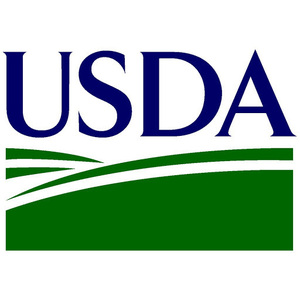USDA extends deadlines for climate-smart commodities funding

March 14, 2022
BY Erin Voegele
The USDA on March 11 announced it is extending the deadlines to apply for its Partnerships for Climate-Smart Commodities funding opportunity. The agency opened the $1 billion funding opportunity in February.
The newly launched program will finance pilot projects that create market opportunities for U.S. agricultural and forestry products that use climate-smart practices and include innovative, cost-effective ways to measure and verify greenhouse gas (GHG) benefits.
The USDA initially set an application deadline of April 8 for the first funding pool, which covers proposals from $5 million to $100 million. Applications for the second funding pool, which includes proposals from $250,000 to $4.99 million, were to be submitted by May 27. Those deadlines have now been extended.
“There has been a high level of interest in the Partnerships for Climate-Smart Commodities funding opportunity, and we want to ensure that a diverse applicant pool is able to apply,” said Under Secretary for Farm Production and Conservation Robert Bonnie. “USDA is extending the deadline for the funding opportunity to provide more time for these applications.”
Advertisement
The new deadline for the first funding pool, which covers proposals from $5 million to $100 million, is now set for May 6. The new deadline for the second funding pool, which covers proposals from $250,000 to $4.99 million, is June 10.
For the purposes of this funding opportunity, a climate-smart commodity is defined as an agricultural commodity that is produced using agricultural (farming, ranching or forestry) practices that reduce GHG emissions or sequester carbon.
Funding for the program will be provided through the USDA’s Commodity Credit Corp. to support pilot projects that provides incentives to producers and landowners to implement climate-smart production practices, activities and systems on working lands; measure/quantify, monitor and verify the carbon and GHG benefits associated with those practices; and develop markets and promote the resulting climate-smart commodities.
Advertisement
According to a notice of funding opportunity (NFO) published by USDA, projects developed under the program must be tied to the development of markets and promotion of climate-smart commodities. “Markets for climate-smart commodities may include companies or processors sourcing climate-smart commodities to meet internal targets or other supply chain goals, biofuel and renewable energy markets, companies seeking to sell branded consumer products, or other opportunities that could provide a premium or additional revenue for participating producers and land owners,” the USDA said in the NFO.
The use of soil amendments, such as biochar, and the development of anaerobic digestion projects are among those listed in the NFO. The NFO outlines additional application requirements that must be completed as part of applications for anaerobic digester projects.
Additional information, including a full copy of the NFO, is available on the USDA website.
Related Stories
Luxury North Dakota FBO, Overland Aviation—together with leading independent fuel supplier, Avfuel Corp.— on May 19 announced it accepted a 8,000-gallon delivery of sustainable aviation fuel (SAF) on May 12.
May 21 marks the official launch of the American Alliance for Biomanufacturing (AAB), a new coalition of industry leaders committed to advancing U.S. leadership in biomanufacturing innovation, competitiveness, and resilience.
A group of 28 House members on May 16 sent a letter to President Donald Trump urging his administration to adopt timely, robust Renewable Fuel Standard renewable volume obligations (RVOs) for 2026 and beyond.
Neste and FedEx, the world’s largest express cargo airline, have agreed on the supply of 8,800 metric tons (more than 3 million gallons) of blended Neste MY Sustainable Aviation Fuel to FedEx at Los Angeles International Airport (LAX).
A bill to formally adopt a revenue certainty mechanism to support the production of SAF was introduced in the U.K. Parliament on May 14. The proposed scheme is in the form of a guaranteed strike price.
Upcoming Events










